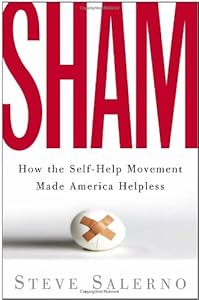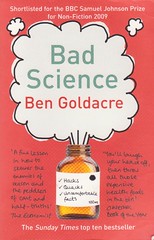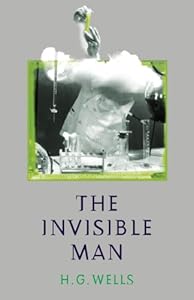 Cover via Amazon
Cover via AmazonThere is a scene in
Dolly Parton’s 1992 film, “
Straight Talk” that immediately comes to mind whilst reading “
SHAM: How the Self-Help Movement Made America Helpless”. Parton’s character accidentally becomes a “radio therapist” despite having no qualifications in psychology. In the scene I am thinking of, Parton is challenged by a professional clinical psychologist and only just saves herself from embarrassment by telling him she got her qualifications in the school of “screw you!” Later, when Parton fails to follow some of her own advice, she eventually confesses on air that she has no qualifications and is not really a doctor before leaving. Her viewers beg her to return and she does on the condition that she isn’t referred to as “doctor” and just her first name.
If Steve Salerno has seen this film he might remark how prophetic it was on the whole self-help industry. His book reveals the huge industry that has cropped up under the Self-Help and Actualization Movement (or appropriately SHAM) banner and the people behind it who are often hypocritical and under-qualified to offer advice. These self-help gurus have garnered a reputation brought on by their own brand of “straight-talking”, which many psychologists have argued can be very harmful to the vulnerable people they are advising. If only, Salerno might say, many of these self-appointed “doctors” would acknowledge their own hypocrisy and humble themselves like Parton’s character. Instead they have become pious millionaires and billionaires, making a fortune off a whole host of subjects they have questionable experience in and provide highly dubious or ambiguous results in. Nevertheless, Salerno argues they have integrated their ideas into our language, industry and education.
“SHAM” shows how the self-help movement can be roughly divided into two areas, victimization and empowerment. Victimization apparently came first, with gurus creating a whole host of states of victimhood they claimed their clients suffered from. Empowerment came later and was clearly more in line with the 1980s culture of power and advancement. The book documents how, mainly through their promotion by Oprah Winfrey, these gurus have grown into hugely influential individuals, hired by educators, large corporations and even governments.
Salerno’s book is divided into two sections, “The Culprits” and “The Consequences”. In the first section we read about the rise of the self-help guru and his industry. These chapters document certain key figures, such as “Dr Phil” McGraw and
Tony Robbins who have entire chapters dedicated to them, and groups of specialist self-gurus such as those who use spirituality or their “life experiences” in crime – Salerno calls these guys the “Contrepreneurs” – or those who either target sport or use their sports coaching experience to apply to other seemingly unrelated activities. Essentially the crux of Salerno’s arguments against the movement is that much of the advice is overly simplistic, has little or no basis in mainstream cognitive behavioural studies and rarely solves the problems who buy into it. This latter point is laboured home time and again. Those who invest in the expensive programmes, buy the related merchandise and routinely attend their seminars don’t seem to ever achieve what is being promised by the gurus. They tell those who ask that the experiences are “life-changing”, but there is little in the way of the concrete results from any of this and the simple issue remains that they just keep going back.
Salerno says this addiction has long-term bad consequences for our very culture. Now businesses think little of “team-bonding” events or hiring all sorts of New Age gurus to help improve group performance, despite there being very little evidence to suggest these investments make any difference whatsoever. Self-help has also made its way into schools and its impact particularly via the “victimization” path is very evident. Now everyone has “issues” of some sort or another, including bullies and disruptive children, in fact everyone except for the “disempowered” teachers!
As far as sceptical subjects go, life-coaching and the motivational industry is a less black and white subject for me. I have many friends in the industry and I don’t think what they do is necessarily wrong. The line between philosopher and motivational guru is a thin one. I admit to being sold on the defining works of
Stephen R. Covey, “
The Seven Habits of Highly Effective People” and “Principle Centred Leadership”, but on reflection a good amount of his stuff is clearly cleverly marketed “old wisdom” coloured by corporate clichés. Nevertheless, I still enjoy them today and there is a lot of good commonsense stuff in there. Self-help has definitely invaded the martial arts and self defence industry I teach in and to a certain degree it isn’t harmful. However, as the New Agey side of things, along with the unscientific practice of NLP (neuro-linguistic programming) and the Robbins influence becomes more overt, I fear a lot for its future. Salerno does make some strong arguments that have made me think twice about certain ideas in the industry and I am grateful for the overall view of SHAM’s history. His critique of the industry stretches back to and beyond “
How to Win Friends and Influence People”. This provides an interesting clash with another book popular in the sceptical movement,
Richard Wiseman’s “59 Seconds”. Wiseman, who is a regular interviewee of many sceptical shows, found a lot of the assertions made in “How to Win Friends and Influence People” to stand up to scientific scrutiny. So, not all “lifestyle” books need be painted with the same brush.
I don’t like wheeling out the “balance argument”. However, many critics of this book have made the valid point that “SHAM” only offers a systematic critique of the self-help culture. However, in Salerno’s defence there are no other books that have tackled this subject head on. There are books that cast a critical eye on counselling and the therapy culture, but not the whole issue of the self-help and actualization movement. For me, seeing the way the self protection and
martial arts industry are buying into the SHAM movement this book was a bitter pill to swallow. I don’t think that Salerno is always right in his arguments or even in his tone. He seems to contradict himself too. Early in the book he rightfully pulls apart the “
Men are from Mars, Women are from Venus” franchise, by describing it as a throwback to the pre-60s gender defining psychology. Then he later, when he gets to the impact SHAM has had on education, he makes the rather puzzling and conservative-leaning assertion that boys have become effeminized by the movement. The 1990s has certainly seen the rise of the metrosexual and we are seeing more androgyny these days than in the past few decades, but these seem to be more to do with fashionable phases – such as the foppish effeminate dandies of the early 19th century. We are also in an era of extreme sports, mixed martial arts cage fighting, white collar boxing and retrospective machismo in our media. As I mentioned before some of his arguments also pit him against fellow sceptics, such as the aforementioned Richard Wiseman, and he doesn’t seem to offer much in the way of a solution. Nevertheless, much of what is said in Salerno’s book needed to be said and there is more that Salerno and Wiseman agree upon than disagree with. I would highly recommend this book to most people and it has led me to want to seek out more critiques on our therapy and self-help culture. Sometimes in order to get back balance you need an extreme work as a counterweight.
Don't forget to check out Jamie Clubb's main blog www.jamieclubb.blogspot.com


















